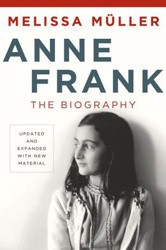
Faye Shulman with rifle, courtesy of the author
I have spent the past two decades of my career telling the stories of inspiring and courageous individuals and movements, whose life’s works and actions have shifted the course of history. And this film, Four Winters, is on so many fronts the most inspiring and fiercely impactful film that I have ever worked on. The Partisans’ stories need to heard. This history is not only riveting but provides an essential revelation about the stubborn trope of Jewish passivity during the Holocaust. Four Winters allows for the partisans themselves to tell their story, in an almost collective memoir that stirs one’s heart, mind, and soul. I wanted to create a film that allowed the partisans to reveal their truths, humor, pain, sorrow, regret, and courageous acts of heroism. And in this special last telling of their stories, we have provided them this opportunity.
As an art activist, it is my intention to tell stories that inspire people to find their own strength in the face of great challenges and adversity. To step out and stand up, to find one’s voice, create the art – be it paint, theatre, music – and to rise up against bigotry, hate, and brutality, to fulfill each of our own journeys in helping to heal the world.
As a young reader, I was introduced to the Holocaust through the diary of Anne Frank. This book had a tremendous impact on me as a young person. Her personal journal entries told a story of an innocent girl who was, for a while, sheltered by righteous non-Jews from the murderous killing machine of Hitler’s armies; leaving my adolescent mind to wonder, who would my righteous non-Jews be, should someone come for me and my family? And where would I hide? I recall comforting myself with the well-known cellar of our family’s closest friends – hoping that this would be my safe haven, should lightning strike – whilst also wanting to build a squad of the neighborhood kids to flee into the woods and fight back, inspired by fairytale references that I could draw upon: the portals to Narnia, Robinson Crusoe’s escapades, the bravery of the Lost Boys of Peter and Wendy’s Neverland. It was decades later that I learned of the Partisans, and all that I had conjured to comfort my adolescent heart was opened up to reveal an opportunity to not only explore but to unravel the deep and unanswered questions of my childhood: Did the Jewish people fight back? How did they escape? Where did they hide? And how did they survive against the steely might of the Nazi war machine determined to devour their lives?
After my own discovery of the partisan story – that over 25,000-plus Jewish partisans fought back against Hitler and his collaborators – I was heartened to learn of these brave teens who fought back. I delved deeply into the many extraordinary memoirs that were published by those who lived this history, as well as the brilliant scholarly works on the subject, each a lighthouse unto itself, which I leaned into over and again as the film evolved.
These memoirs were beacons in my work, guiding my inspiration in developing the interview questions and writing the script for Four Winters. Through their innocence (very much like Anne Frank) and self-determination – which ultimately led them on the path to becoming partisans – I understood that now I had a new portal, a powerful and important lens through which to tell this history. Ultimately, in a world that had turned upside-down, I became profoundly inspired by the heroism, grit, and humanity of every partisan.
The Defiant: A True Story of Escape, Survival and Resistance by Shalom Yoran
Shalom Yoran’s memoir The Defiant was the pivotal memoir in my research. Not only did Shalom become a cherished friend to me and the documentary, he was also in many ways a mentor.
Rather Die Fighting: A Memoir of World War ll by Frank Blaichman
A stunning memoir that revealed not only the acts of the partisans themselves but in startling detail tells the story of sabotage and resistance against all odds. Frank is featured in our film.
A young teenage girl with her camera and fur coat defied the Nazis and took photographs which are featured in our film, as well as Faye Schulman herself.
Indelible Shadows: Film and the Holocaust by Annette Insdorf
This powerful book bears a different kind of witness by investigating the cinematic medium through which we tell Holocaust stories. Stories which explore memory and the vast archives of film and photographs that remain as indelible marks through which filmmakers strive to navigate with fluency and accuracy.

Mintz’s work focuses on narratives of bravery and resistance against unimaginable odds. She has been on the producing teams for films which have been shortlisted for the Academy Awards, have premiered at Cannes, Sundance and TriBeCa, and won Emmy, Peabody and festival awards. Her films can be seen on HBO, PBS, American Masters, NETFLIX, Amazon, and are shown on college campuses across the country. She has taught seminars and workshops worldwide, and has held an adjunct faculty position at LIU in NYC. Mintz has been a featured keynote and guest speaker for engagements in both the public and private sectors. Mintz is an award-winning artist and accomplished multi-grant recipient for her work in visual arts and documentary film.



